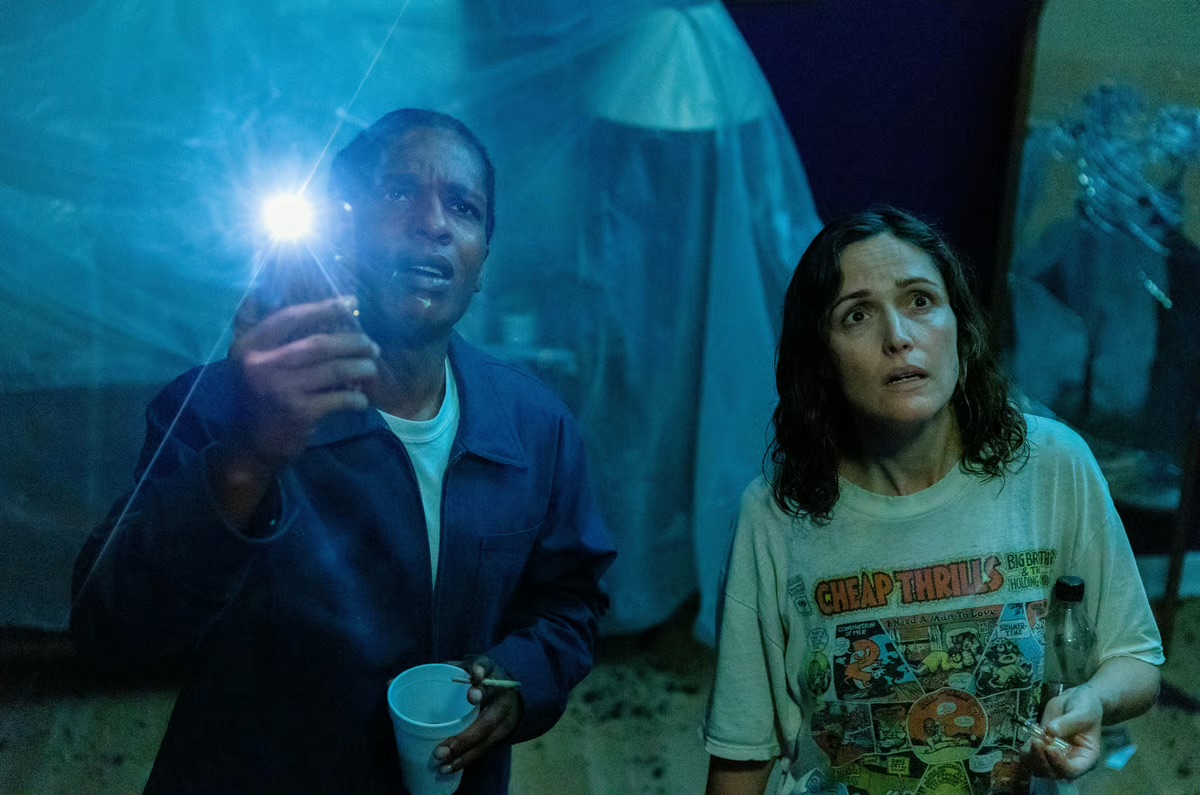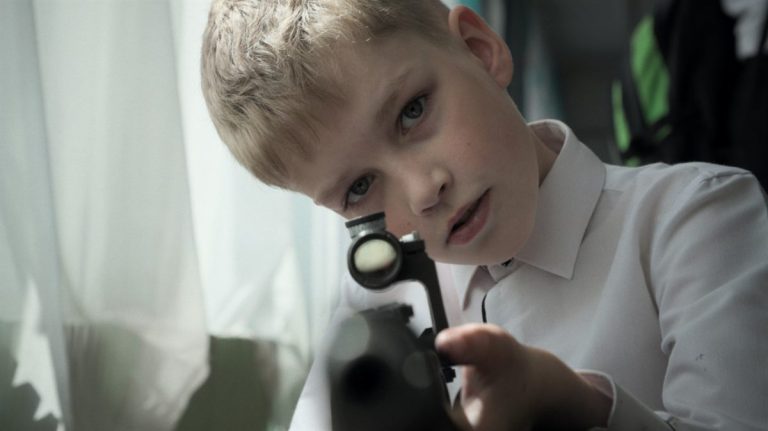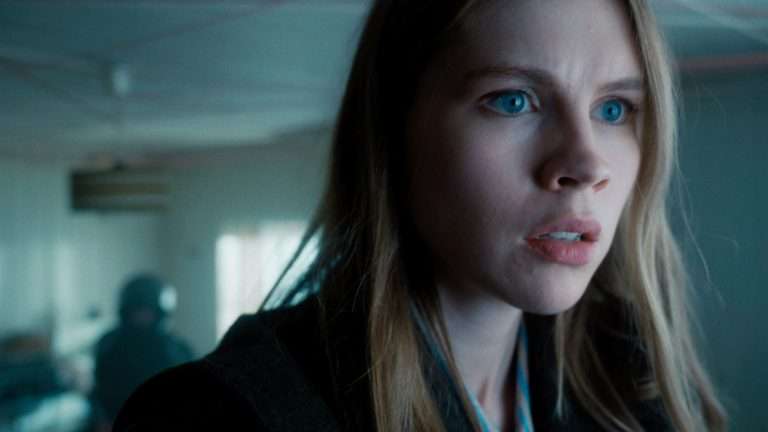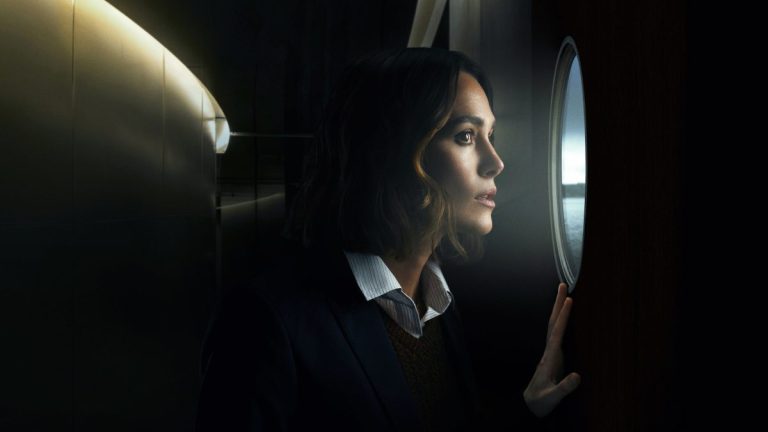Rarely have the pressures of motherhood been more well-realized on screen than in “If I Had Legs I’d Kick You,” the overwhelming second feature from writer/director Mary Bronstein. Stories of parenthood often circle around fear of loss or abandonment, but “If I Had Legs I’d Kick You” stands apart in its expressionistic vision.
Rather than presenting a voyeuristic portrait of the exhausting routines of childcare, Bronstein plunges us into the psyche of a deeply troubled woman, a voice echoing as though into a void. Being in such close quarters with a character who is frustrating in her decisions and circumstances doesn’t exactly make for a pleasant experience, but the empathy generated by “If I Had Legs I’d Kick You” is thought-provoking and evocative, as there isn’t an emotion generated that feels false or invalid.
Rose Byrne has long been an underappreciated actress, as it was after her breakthrough role on the terrific FX series “Damages” that she took on a variety of parts of projects of all shapes and sizes, managing to deliver profound work in everything from “Neighbors” and “Bridesmaids” to “Sunshine” and “X-Men: First Class.” With “If I Had Legs I’d Kick You,” Byrne doesn’t as much dominate the screen as she swallows it, as Bronstein chooses to shoot the film with close-quarters shots that get intimately familiar with the experiences of the therapist Linda, who is trying to care for her young daughter (Delaney Quinn).
This isn’t a film that takes the time to set the stage, as there’s already a crisis within the opening moments. Linda deals with the burden of taking her daughter to school, arguing with the parking attendant, trying to appease her needy clients, and trying to forge some sort of agreement with her absent husband, Charles (Christian Slater).
Although Bronstein captures a level of intensity within this aspect of Linda’s routine, the story faces a major development when she finds that the roof of her home has caved in, forcing her to take up residency in a local motel. This isn’t just an inconvenience to Linda’s already fragile living situation, but yet another incident in which she finds herself working overtime simply to be acknowledged.
Also Read: The Monstrous Feminine: 30 Best Feminist Horror Movies of All Time
Bronstein is incredibly delicate in her depiction of the contrivances and mini-battles Linda faces daily, as simply being dropped within the midst of a particularly chaotic day doesn’t give her any sense of normalcy. Details about the specificity of her daughter’s condition are slowly revealed, but her face is masked, putting up yet another barrier between Linda and the rest of reality. She’s forced to watch others care for, celebrate, and discuss her child as if it were an object, and one that she isn’t able to fully care for in her wounded state.
Although diving into some of the film’s more controversial issues could have resulted in an extended justification period that could derail the momentum of the story, “If I Had Legs I’d Kick You” is upfront in the blatant ways in which Linda is forced to confront the uncomfortable aspects of motherhood. Others might be able to hide behind comforting phrases or vaguely worded testaments of optimism about the future, but those offer no immediate assistance to a woman who feels as if the world is collapsing around her.

Linda’s profession as a psychologist does provide the film with more than a few instances in which it allows characters to directly address their internal turmoil, but it’s not used as a crutch to get around more subtle development. The process Linda is forced to take is often agonizing, as she’s forced to take precaution in giving rosy advice to clients who aren’t able to accept fundamentals.
This comes off as particularly infuriating, as Linda has already suffered far too many indignities based on the lack of respect given to a single, working mother who finds it challenging to work a child’s illness into her schedule. Linda’s relationship with her patients reflects the one she shares with her daughter—defined by constant taking, never forgiveness. In both, she treads carefully, fearing condemnation for even the gentlest rebuke.
While You’re Here: A Case for John Cassavetes’ A Woman Under The Influence
Byrne’s performance is not only the best of the year, but a monumental achievement in acting that merges the raw, untapped anguish of Gena Rowlands in “A Woman Under The Influence” with the response to an unseen, supernatural fear of gaslighting seen in Julie Christie’s work in “Don’t Look Now.” There are more than a few moments in which Linda is made to feel superficial, selfish, or even careless, but Byrne generates so much empathy based on the fact that she already reached her breaking point well before the film began.
Byrne’s performance isn’t as heightened as it is authentically intense. It’s particularly haunting to watch Linda desperately call attention to herself only to be met with muted indifference. The surreal components of the story, much of which revolve around the gaping hole in her home and its metaphorical associations, are perfectly synced to the vacuum that exists within Linda’s interpersonal relationships.
In what may be the film’s most surprising performance, Conan O’Brien has a fascinating role as Linda’s coworker, a fellow therapist who has also treated her professionally. Given that the film is centered on the unfounded judgment that mothers like Linda face, it’s impactful that her most significant relationship is with someone who holds authority over both her employment and mental health assessment.
O’Brien finds a fazed, yet cold side to a therapist who feels no obligation to offer the warmth that Linda must feign, all whilst denying her the professional courtesy of mutual respect. However, the brief touches of humility, frailty, and genuine concern for Linda’s behavior (if not her well-being) lock him in an icy reality. O’Brien may be scheduled to host the Academy Awards next March, but in a just world, he would also earn a nomination for Best Supporting Actor.
Some may find the relentlessness of “If I Had Legs I’d Kick You” too aggressive, particularly in its conclusion, but the film finds such mundanity in its casual cruelty that it’s easy to see Linda being willed into submission. While one could find the influences behind Bronstein’s work in performance art, ‘70s cinema, and even philosophy, the end product of “If I Had Legs I’d Kick You” is a startling feat of originality.








